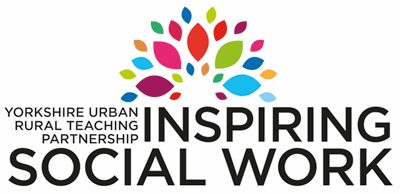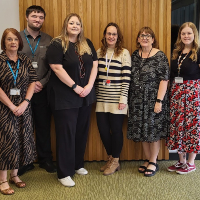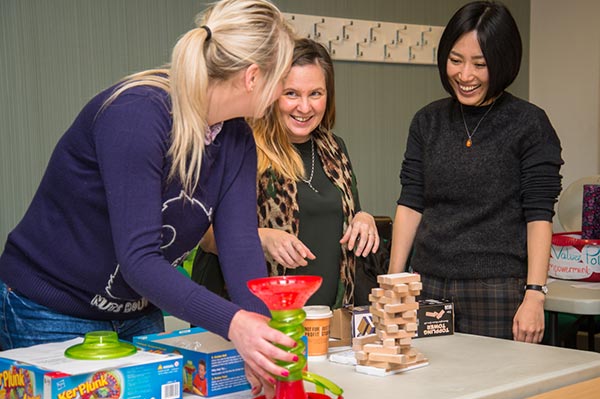View semester dates

MSocW (Hons) Social Work
Start your career as a social worker with an advanced four-year course which knits together study and practice
Year of entry: 2026/27
View semester dates
9th in the UK for Social Work
11th for the quality of our social policy and social work research
The Master in Social Work (Hons) is a professional qualification which entitles you to apply to register as a social worker: a challenging and rewarding career.
This four-year integrated Masters course provides an advanced alternative to standard three-year BA Social Work degrees.
You will have the opportunity to explore social work issues at depth under the guidance of experienced practitioners, researchers and people with lived experience from a range of backgrounds, gaining unparalleled insight into the reality of social work practice. By progressing directly from undergraduate to postgraduate work, you will save time as against completing the two separate qualifications, and you will develop advanced critical thinking skills and expertise which will be advantageous to you throughout your career. You'll gain a Masters-level qualification which is highly valued by employers.
Years 1 and 2 of the programme set the context for professional practice. Social work is a multidisciplinary field and you will study a range of topics drawing on sociology, social psychology and social policy to help you to develop your understanding of the broader environment. You are also able to choose one option module in Year 1 and Year 2 enabling you follow and expand your interests.
The final two years include postgraduate modules, and during this time you will gain specialist knowledge of social work theory and practice. You'll have the opportunity to ‘deep dive’ any relevant area of knowledge for your dissertation, contributing your own insights into social work practice.
We welcome a wide range of students onto the course and are enthusiastic about the 'widening participation' agenda. The university has again been recognised with a quality mark for it's support of independent and care-experienced students.
Join a thriving School, internationally recognised for its teaching and research excellence and gain a solid foundation from which to begin your professional journey.
Accreditation
After completing this degree you can apply to register as a social worker with Social Work England. As a social work student you will be expected to adhere to the standards set out in the Social Work England professional standards.

Course content
This course follows the British Association of Social Workers Professional Capabilities Framework (PCF). Throughout your four years, you'll focus on the PCF's nine key domains:
- Professionalism
- Values and Ethics
- Diversity
- Rights and Justice
- Knowledge
- Critical Reflection
- Intervention and Skills
- Contexts and Organisations
- Professional Leadership
Year 1
In your first year you'll study core modules which introduce fundamental social and sociological theory.
Core modules
- Introduction to Social Work
- Power, Policy and Social Progress
- Contemporary Issues in Social and Public Policy
- Social Evils in the Chocolate City
- The Psychological Mind in a Social World
Option modules
You will also study one option module. Examples from previous years have included:
Academic integrity module
In addition to the above you will also need to complete our online Academic Integrity module.
Year 2
The core modules of your second year will introduce more practical elements, building on Year 1's theoretical foundation. You'll develop essential skills for social work, which you'll have a chance to refine on placement with a voluntary organisation or independent social care agency. You'll also learn how to evaluate and develop service provision, and carry out practice-related research.
Core modules
- Community Practice Experience
- Communities, Participation and Creating Change
- Enabling Spaces and Places: Exploring Social Perspectives on Disability and Mental Health
- Researching Policy and Society
- Social Work Skills: Creative Approaches to Working with Individuals and Groups
Option modules
You will also study one option module. Examples from previous years have included:
Year 3
Core modules
- Social Work Practice Skills
- Social Work Across the Lifecourse - Part 1
- Social Work Across the Lifecourse - Part 2: Knowledge into Practice
- Law and Policy for Social Work
Placement
In the first half of Year 3 you'll prepare for your first statutory placement with a range of core modules which ensure you're ready for practice. You'll explore the ethical, legal and policy contexts for social work, which will equip you to manage the competing pressures of social work practice.
The placement begins in Semester 2 and lasts for 70 days, after completion of a module designed to support your professional development.
This counts towards the 200 days of practice which you must complete before you can register as a social worker. You'll spend 70 days at a social work agency as well as Skills Days at the University, developing specialist techniques for working with individuals, families and groups.
You'll work with a qualified social work practice educator who will support and assess you throughout the placement. Your placement is a chance to develop and follow your own professional interests, with guidance from our academic staff.
As part of your placement report you will complete written work which will evidence how you have brought the knowledge gained in the classroom into your professional practice.
Year 4
Core modules
As part of your fourth year you'll undertake your final statutory placement. This will take 100 days. This counts towards the 200 days of practice which you must complete before you can register as a social worker. You'll spend 100 days at a social work agency, developing skills for career-long learning, self-care and leadership.
Throughout the year you'll work on your Masters dissertation. This is a 16,000-word extended essay based on your own original research. You'll work with your supervisor to choose a topic which interests you and design an empirical study or systematic literature review to explore your research question in depth.
The dissertation will allow you to demonstrate your skills in research as well as applying insights from the taught modules and your placement experience.
Examples of recent dissertation titles include:
- A case study of a community mental health team's experience using cognitive behaviour therapy for the treatment for adult depression
- Back to real social work? The implications for the practice of care managers following the introduction of individual budgets
- Domestic violence - whose problem is it? An analysis of multi-agency services and responses to domestic violence
- Self harm: the experience of professionals
Our modules may change to reflect the latest academic thinking and expertise of our staff, and in line with Department/School academic planning.
Learning outcomes
Every course at York has been designed to provide clear and ambitious learning outcomes. These learning outcomes give you an understanding of what you will be able to do at the end of the course. We develop each course by designing modules that grow your abilities towards the learning outcomes and help you to explain what you can offer to employers. Find out more about our approach to teaching and learning.
Learning outcomes for this course
- Make informed decisions concerning complex problems faced by individuals, families and communities in a wide range of social work contexts, by using appropriate assessments and interventions, analysing information from a range of different sources and incorporating stakeholder and service-user perspectives.
- Critically evaluate, synthesise and apply empirical knowledge and theoretical perspectives from across the breadth of social science disciplines to social work practice.
- Critically analyse local, national and international social policy and its influence on social work practice within the legislative framework.
- Critically engage with concepts of social justice and social change, and apply this understanding to participation in advocacy, and community and service development.
- Develop strong working relationships with service users, colleagues and other professionals, and within social work and interdisciplinary teams, based on high level communication and collaboration skills.
- Work effectively as a professional in multi-layered organisations and social work contexts by understanding and respecting the roles and tasks of others, including non-statutory professionals, and upholding professional values and ethics.
- Reflect systematically on social work practice and engage proactively in supervision processes in order to adapt to new situations, improve practice, build professional resilience and identify professional development opportunities, including the development of leadership skills.
- Design, conduct and critically evaluate challenging social work research projects, informed by a critical understanding of research and evaluation methodologies relevant to the social sciences.

One of the main surprises for me was the opportunity to work together with my course friends. Though I like to learn independently, I also really enjoy working with other people. Working on group tasks and group presentations was enjoyable and beneficial to my learning.
Fees and funding
The fees and funding information here is for students starting in the 2026/27 academic year.
If you take a year abroad or year in industry you'll pay a reduced rate of fees for that year.
Annual tuition fees
| UK (home) | International and EU |
|---|---|
| £9,535 (TBC) | £26,900 |
The UK government has announced its intention to increase tuition fees from £9,535 to £9,790 for the 2026/27 academic year. We expect this to apply to new UK (home) undergraduate students starting their studies in September 2026.
UK (home) or international fees?
The level of fee that you will be asked to pay depends on whether you're classed as a UK (home) or international student. Check your fee status.
Fees for subsequent years
- UK (home) fees may increase within the government fee cap in subsequent academic years. We will notify you of any increase as soon as we can.
- International fees are subject to increase in subsequent years in line with the prevailing Consumer Price Index (CPI) inflation rate (up to a maximum of 10%).
More information
For more information about tuition fees, any reduced fees for study abroad and work placement years, scholarships, tuition fee loans, maintenance loans and living costs see undergraduate fees and funding.
Additional costs
You will require a DBS check to take part in this course. You will pay £40 at the beginning of your course and a £13 update fee in subsequent years.
You will be responsible for travel costs to placements but can apply for an NHS Bursary to meet these costs (British citizens only). Some agencies may reimburse travel costs.
Course books will be available to you from the Library either in print or online format - new copies, if you wish to buy them, usually cost around £30. All other teaching resources will be available online.
Funding
We'll confirm more funding opportunities for students joining us in 2026/27 throughout the year.
- UK government loans
- UK scholarships and bursaries
- International scholarships
- Country-specific funding
- US loans
NHS bursaries
The NHS offers bursaries for students studying social work in years 3 and 4 of their degree, subject to eligibility and availability.
- Apply for an undergraduate bursary (nhs.uk)
York, Oxford, Cambridge, Imperial
Just four UK universities are rated Gold for teaching and top ten for research* in the latest national assessment exercises.
* Awarded joint 10th in the Times Higher Education ranking of the Research Excellence Framework 2021.
Teaching and assessment
You’ll study and learn with academics who are active researchers, experts in their field and have a passion for their subjects. Our approach to teaching will provide you with the knowledge, opportunities, and support you need to grow and succeed in a global workplace. Find out more about our approach to teaching and learning.
Teaching format
Your lectures, seminars and workshops will be delivered by enthusiastic and knowledgeable academic staff. Guest speakers with specialist expertise, including practitioners and people with lived experience from our Service User and Carer Participation Advisory Group, provide unique insights into social work practice.
You'll develop your knowledge and understanding with focused and guided reading and group work. For some modules you'll undertake online activities to support your learning beyond the classroom. Throughout your degree you'll participate in regular professional development group sessions, developing social work knowledge and skills.
You'll meet with your personal supervisor at least once each term. This is a member of teaching staff who will provide academic and personal support. While on placements you will receive specialist support from a practice educator or work-based supervisor who will manage your induction on the placement as well as guide you through your time there.
In order to qualify as a social worker you must spend 200 days in practice learning. This comprises 70 days in Year 3 and 100 days in Year 4. In addition over the course of Years 3 and 4 you'll participate in 30 skills days, offering insight into a variety of social work settings.
Teaching Partnership
We are part of the Yorkshire Urban Rural Teaching Partnership, working closely with local councils and the University of Huddersfield. The partnership collaborates to develop, inspire and sustain highly-skilled and confident social workers to improve outcomes for children, adults, families and communities.

Timetabled activities
In your first year, you can expect:
| Lectures | 6 hours per week |
|---|---|
| Seminars | 3 hours per week |
These figures are representative of a typical week. Your contact hours will vary throughout the year due to your module choices, non-compulsory classes, exam periods and changes to scheduled activities.
Outside your timetabled hours, you'll study independently. This may include preparation for classes, follow-up work, wider reading, practice completion of assessment tasks, or revision.
In the UK, full-time students are expected to spend 1,200 hours a year learning. That's about 40 hours of classes and independent study each week during semesters. Everyone learns at a different rate, so the number of hours you spend on independent study will be different to other students on your course.
Teaching location
You will be based in the School for Business and Society which is based on Campus West. Most of your contact hours will be in Campus West, although there may be some teaching on Campus East.
You will undertake three placements with agencies based predominantly in York and North Yorkshire. You will be responsible for arranging travel to and from your placements.
About our campus
Our beautiful green campus offers a student-friendly setting in which to live and study, within easy reach of the action in the city centre. It's easy to get around - everything is within walking or pedalling distance, or you can use the fast and frequent bus service. Take a campus tour.
Assessment and feedback
Most of your modules will be assessed by written assignments and presentations. We'll provide you with feedback on assignments within four weeks of submission. Types of assessment in this course include:
- Essays
- Presentations, portfolios and reports
- Viva (oral exam)
- Dissertation
Your placements are assessed by your social work practice educator with oversight from University staff. They'll assess your competence to practice by observing your interaction with services users and by reading your report. They'll also use feedback from services users and your colleagues when assessing your placement.
You'll also submit work that won't count towards your final grade. The feedback you receive will allow you to discover your academic strengths and identify areas for improvement.
Careers and skills
Our partner agencies have told us that they value the opportunities we give students to build employability skills. During this course, you'll have the opportunity to gain practice experience in a voluntary sector placement in your second year, followed by placements within diverse social work settings in Year 3 and 4.
After completing the Masters in Social Work you'll be able to apply to register as a social worker in England. Some of our students choose to go on to further study, often progressing to a PhD.
Career opportunities
As well as registering as social workers, graduates go on to work in a range of areas, including:
- Advocacy and advisory services
- Research
- Youth development work
- Child protection social worker
- Outreach worker
- Crisis practitioner
- Social care assessor
- Mental health practitioner
- Manager (all levels)
- Policy developer
Transferable skills
You'll develop a range of transferable skills that are highly valued by employers, including:
- Critical analysis
- Debate
- Research and evaluation skills
- Presentation skills
- Time management
- Interpersonal skills

I had no idea what aspect of social work I wanted to work in. However, the placements team are brilliant at responding to this. My advice would be to go into each placement with an open mind and absorb everything you can like a sponge!
Entry requirements
| Qualification | Typical offer |
|---|---|
| A levels | BBB |
| Access to Higher Education Diploma | 21 credits at Distinction and 24 credits at Merit or higher |
| BTEC National Extended Diploma | DDM |
| European Baccalaureate | 75% overall |
| International Baccalaureate | 31 points overall |
| T levels | We will consider a range of T Level qualifications for entry. Please visit our dedicated T Levels page for a full list of accepted T Levels. |
| Scottish Highers / Advanced Highers | Scottish Highers - BBBBB Advanced Highers - not required for entry We may also be able to consider three Advanced Highers or a combination of Highers and Advanced Highers, where an applicant does not meet the grade requirement through Highers alone. Please contact us to discuss your qualifications. |
| Other international qualifications | Equivalent qualifications from your country |
Additional requirements
Grade 4 (C) in GCSE English or an equivalent qualification. An offer of a place will also be subject to a satisfactory Disclosure and Barring Service (DBS) check and a satisfactory health declaration.
Experience of working in social care, health care or any related field, including voluntary work, or direct experience of service provision, is welcome but not essential.
Alternative offers
Meeting the following additional criteria may qualify you for an alternative offer.
| Criteria | Adjustment |
|---|---|
| Widening participation | BCC This is conditional upon successful completion of the WP programme including the YorJourney module (Black Access Programme, Next Step York) or successful completion of Realising Opportunities More about widening participation. |
| Contextual offer | BBC |
| EPQ | If you achieve C or higher in the EPQ, you may be eligible for an alternative offer up to one A level grade (or equivalent) below our typical offer. |
| Core Maths | If you achieve B or higher in Core Maths, you may be eligible for an alternative offer up to one A level grade (or equivalent) below our typical offer. |
English language
If English isn't your first language you may need to provide evidence of your English language ability. We accept the following qualifications:
| Qualification | Minimum requirement |
|---|---|
| IELTS (Academic) | 7.0, with a minimum of 7.0 in each component |
| IB English | A score of 4 in English A or 5 in English B (Higher Level or Standard Level) |
| Cambridge CEFR | 185, with a minimum of 185 in each component |
| Oxford ELLT | 8, with a minimum of 8 in each component |
| Oxford Test of English Advanced | 146, with a minimum of 146 in each component |
| Duolingo | Integrated subscores:130, with a minimum 130 overall in each component |
| GCSE/IGCSE/O level English Language (as a first or second language) | Grade C / Grade 4 |
| LanguageCert SELT | C1 with a minimum score of 33/50 in each component |
| LanguageCert Academic | C1 with a minimum score of 25/50 in each component |
| Kaplan Test of English Language | 510 Main Flight score with 510 in each component |
| Skills for English | C1: Pass overall, with Pass in each component |
| PTE Academic | 67, with a minimum of 67 in each component |
| TOEFL | 96 overall, with a minimum of 24 in each component (taken before January 2026) 5 overall with 5 in each component (taken after January 2026) |
| Trinity ISE III | Distinction in all components |
| Other English language qualifications | We also accept other English Language qualifications, including various school-leaving certificates. |
For more information see our undergraduate English language requirements.
If you haven't met our English language requirements
You may be eligible for one of our pre-sessional English language courses. These courses will provide you with the level of English needed to meet the conditions of your offer.
The length of course you need to take depends on your current English language test scores and how much you need to improve to reach our English language requirements.
After you've accepted your offer to study at York, we'll confirm which pre-sessional course you should apply to via You@York.
Next steps
Contact us
Get in touch if you have any questions


Department
Related courses
- MA Social Work (two-year Masters)
Discover York








